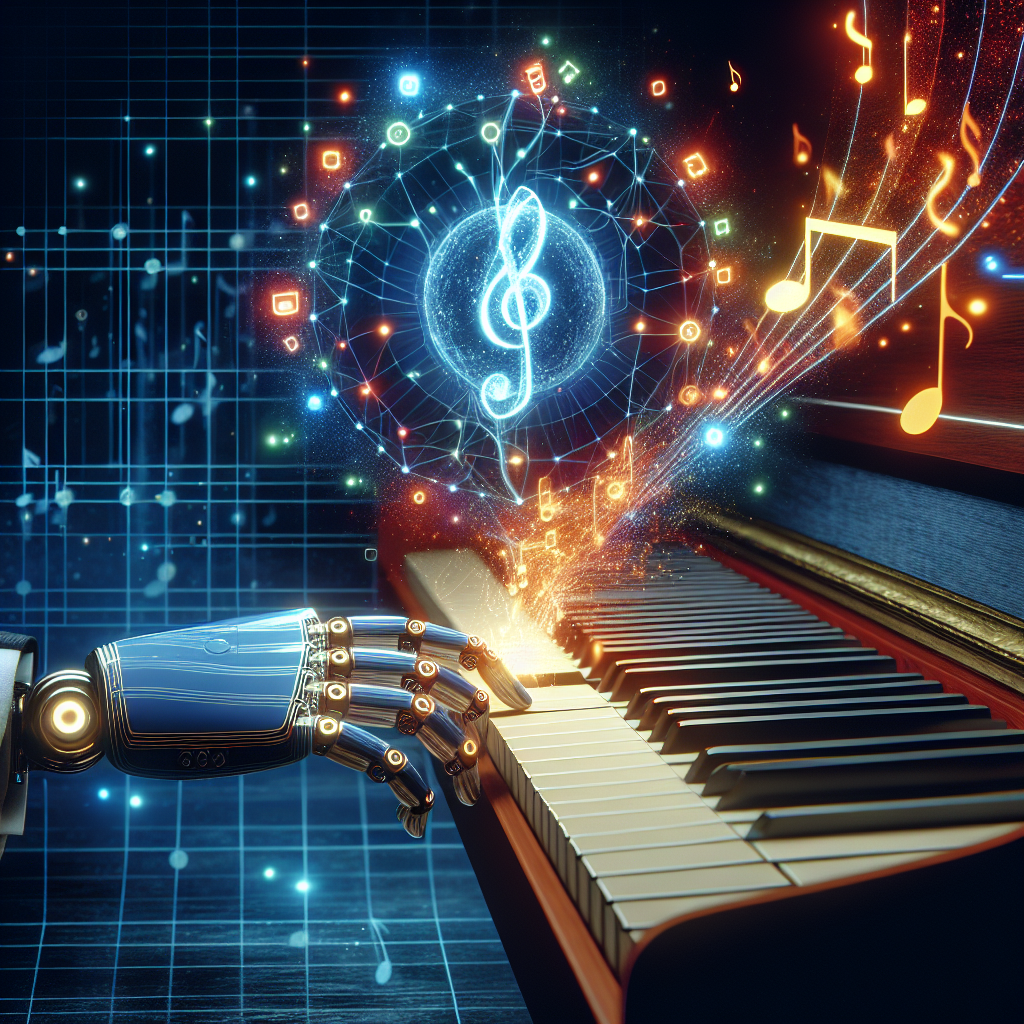The music industry has undergone significant changes over the past few decades, with the rise of digital technology and streaming services transforming the way music is created, distributed, and consumed. Now, another revolutionary force is set to disrupt the industry even further – artificial intelligence (AI).
AI has the potential to revolutionize the music industry in a variety of ways, from helping musicians create new sounds and compositions to providing personalized music recommendations for listeners. In this article, we will explore the ways in which AI is already making an impact on the music industry and discuss what the future may hold for this exciting technology.
### AI in Music Creation
One of the most exciting applications of AI in the music industry is in the realm of music creation. AI algorithms can analyze large amounts of data to identify patterns and trends in music, which can then be used to generate new compositions. This can range from simple tasks like creating background music for videos to more complex tasks like composing entire songs.
One of the most well-known examples of AI music creation is the work of the company OpenAI, which developed a neural network called MuseNet that can compose music in a wide variety of styles and genres. MuseNet has been used to generate everything from classical symphonies to jazz improvisations, demonstrating the potential of AI to push the boundaries of what is possible in music composition.
### AI in Music Production
AI is also being used to revolutionize the production process in the music industry. For example, AI algorithms can analyze audio tracks to automatically clean up noise, adjust levels, and even master a final mix. This can save time and money for musicians and producers, allowing them to focus on the creative aspects of music production.
AI can also be used to assist in the mixing and mastering process, helping to identify and correct potential issues in a recording. This can result in higher-quality recordings and a more polished final product, enhancing the overall listening experience for fans.
### AI in Music Recommendation
Another key area where AI is revolutionizing the music industry is in the realm of music recommendation. Streaming services like Spotify and Apple Music use AI algorithms to analyze user data and preferences to provide personalized music recommendations. This can help listeners discover new music that they may not have otherwise come across, leading to a more diverse and enjoyable listening experience.
AI can also be used to analyze the audio features of songs to create new playlists based on similarities in sound and style. This can help to introduce listeners to new artists and genres, expanding their musical horizons and fostering a greater appreciation for different types of music.
### The Future of AI in Music
As AI technology continues to advance, the possibilities for its application in the music industry are virtually limitless. In the future, we may see AI algorithms being used to create entirely new genres of music, blending elements from different styles and cultures to create truly unique compositions.
AI may also be used to enhance live music performances, with algorithms analyzing audience reactions in real-time to adjust the tempo, volume, and other elements of a performance. This could lead to more immersive and engaging live experiences for concertgoers, creating a new level of interaction between artists and their fans.
### FAQs
1. How is AI currently being used in the music industry?
AI is being used in a variety of ways in the music industry, from helping musicians create new compositions to assisting in the production process and providing personalized music recommendations for listeners.
2. What are some examples of AI music creation?
One example of AI music creation is the neural network MuseNet, developed by OpenAI, which can compose music in a wide variety of styles and genres. MuseNet has been used to generate everything from classical symphonies to jazz improvisations.
3. How is AI being used to enhance music production?
AI algorithms can analyze audio tracks to automatically clean up noise, adjust levels, and master a final mix. This can save time and money for musicians and producers, allowing them to focus on the creative aspects of music production.
4. How is AI being used in music recommendation?
Streaming services like Spotify and Apple Music use AI algorithms to analyze user data and preferences to provide personalized music recommendations. This can help listeners discover new music and expand their musical horizons.
5. What does the future hold for AI in the music industry?
As AI technology continues to advance, the possibilities for its application in the music industry are virtually limitless. We may see AI being used to create new genres of music, enhance live performances, and revolutionize the way music is created, produced, and consumed.
In conclusion, AI is set to revolutionize the music industry in ways that were previously unimaginable. From helping musicians create new compositions to providing personalized music recommendations for listeners, AI has the potential to transform the way we think about and interact with music. As technology continues to advance, we can expect to see even more exciting developments in the future of music, driven by the power of artificial intelligence.

